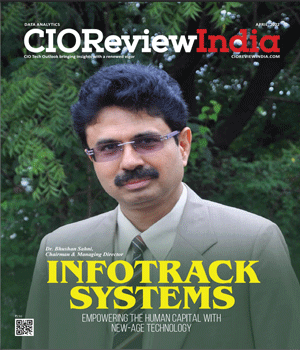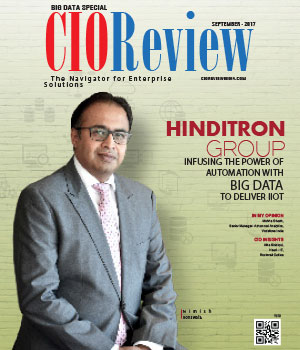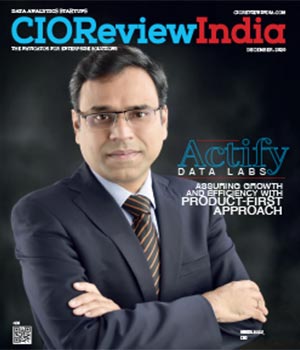
Cloud Computing Emerging as a Panacea for every Business Qualm
Niraj Kaushik, Vice President, Applications Business, Oracle India. | Monday, 30 March 2015, 11:48 IST
 In your view, what are the top three concerns of enterprise CIOs about cloud technologies and solutions?
In your view, what are the top three concerns of enterprise CIOs about cloud technologies and solutions?
CIOs have ranked security, privacy and regulatory compliance as their top concerns around adoption of cloud computing technology and solutions. They often have lingering concerns in a number of areas including security policy compliance, interoperability, and portability.
According to a survey conducted by Unisphere Research among IT and data managers and professionals with the Independent Oracle Users Group (IOUG) members, security issues continue to be a concern with the use of public cloud and online application services, making private clouds a more attractive option to enterprises. As per the survey, private cloud adoption has been on a rise as they offer the same flexibility and incremental cost advantages to end users as public clouds, but with less perceived risk and greater assurances of security and accountability. 43% of respondents claimed security to be the driving factor for seeking a private cloud formation versus that of a public service. The survey also highlighted, adoption of private cloud solutions for IT workload processing or infrastructure clearly outpaced the use of public platform service providers.
Cloud and compliance are often treated as opposing forces. While cloud encourages dynamism, compliance enforces caution and control. Data breach investigations have shown that security controls must be multi-layered to protect against threats that range from account misuse to SQL injection attacks. In addition, the ever changing regulatory landscape and renewed focus on privacy demonstrates the need for solutions to be transparent and cost effective to deploy.
Which business functions would benefit from Cloud?
Cloud computing has been and continues to be adopted by enterprises across industries in many different ways. It represents a fantastic opportunity for technology companies to help customers simplify IT. Cloud has been seeing a lot of demand across sectors. Industries like telecom, BFSI, retail, education, healthcare and government are increasingly turning to the cloud to simplify IT. The demand for public cloud has recently shown an increase in the mobile and broadband sectors; pharmacy, manufacturing, e-commerce, retail and travel were the early adopters of public cloud. These include both the SMBs as well as larger enterprises.
All business applications can be made available on premise i.e at the customer’s site or in a hosted environment also known as the SaaS model. All Oracle applications are available to customers in both models, however, increasingly we have seen the Saas adoption model being more prevalent in the CRM business applications space. Companies are increasingly investing in CRM in a Saas model and this is because it helps organizations lower cost, offers speed and ease of implementation, offers a single instance for a global or nationwide deployment and involves hassle free usage.
What customer demands and business trends will drive changes in Cloud adoption?
Recent surveys show that the top two benefits of cloud computing are speed and cost. Through self-service access to an available pool of computing resources, users can be up and running in minutes instead of weeks or months. Making adjustments to computing capacity is also fast, thanks to elastically, scalable grid architecture. Since cloud computing is a pay-per-use model, operates at a high scale and is highly automated, the cost and efficiency of cloud computing is very compelling as well.
What trends do you see in the evolution of cloud computing?
SMBs are expected to adopt public cloud services owing to lower costs involved, while private cloud computing is anticipated to see stronger traction with larger companies, which is not surprising, since many of these organizations already have extensive investments in expansive IT infrastructures.
Companies in the financial sector are also adopting cloud computing for specific workloads. In particular these companies tend to have large teams of developers, and thus benefit from moving traditional development and test environments, which are usually underutilized, to cloud-based models, which improve agility and efficiency. Large financial institutions are mostly building their own private development and test clouds, although some are also exploring the benefits of using public clouds for such purpose.
According to the survey conducted by Unisphere Research among IT and data managers and professionals with the Independent Oracle Users Group (IOUG), private cloud formations are growing in many companies, often outpacing adoption of public cloud services. As per the same survey, companies are packaging and virtualizing their own IT assets into cloud-like services to offer across various departments and divisions, and even to outside partners. These ‘private clouds’ offer the same flexibility and incremental cost advantages to end users as public clouds, but with less perceived risk and greater assurances of security and accountability.
Furthermore, security issues continue to be a concern with use of public cloud and online application services, making private clouds a more attractive option to enterprises. The survey also highlighted, adoption of private cloud solutions for IT workload processing or infrastructure clearly outpaced the use of public platform service providers.
Economics, security, and performance are big topics in the cloud, your thoughts?
Answer: Oracle is committed to improving cloud security and has been building innovative security solutions which bring industry-leading security functionality and ensure that the cloud environment remains secure for enterprises. Oracle Database provides advanced security products like Database Vault, Audit Vault, Advanced Security Options to ensure security of Data. Oracle Identity and Access Management Suite simplifies the management of user identities and security in an enterprise infrastructure that spans a mixture of private and public cloud services. Using the most complete and best-in-class solutions available from Oracle, enterprises can manage the entire user identity life cycle across all enterprise resources—both within and beyond the firewall.
On the performance side, Oracle remains poised to address needs for extreme performance and mission-critical computing, so that companies can reap the greatest ROI out of their IT investments. Oracle provides complete, integrated and optimized systems which greatly reduce the TCO for the customer. As Oracle provides hardware and software technologies, customers can expect clean and elegant solutions which are more tightly engineered to reduce costs and boost performance.
How has Oracle India been doing in comparison with the operations in other countries?
Oracle has been operating in India for nearly 20 years. We have grown phenomenally. Today, we employ over 31000 professionals in India comprising our sales, support (including global support), R&D and OFSS organizations. It’s one of the largest MNC IT employers in the country. In fact, we have also recently announced that we would be expanding our cloud sales staff in the country. Our R&D workforce alone accounts for one-third of Oracle’s global R&D workforce outside the US. The team works on cutting edge technologies that are powering Fortune 500 companies and India’s successful organizations – be they large or midsize, in every industry. We’ve been able to attract top talent to work in our development centers, be part of a global successful R&D organization. So, certainly there is confidence in India and a clear plan to grow the market. This is the reason why we are having the Oracle CloudWorld in India for the third time and this time in Mumbai. It is a demonstration of our commitment to this market. It is a great platform for internal and external stakeholders to come together and share insights on what has worked for them.
The growing Indian economy and new business avenues to grow the business – be it mobile, e-commerce, green data centers etc are also driving growth for information technology in the country. APAC is one of the high growth markets for Oracle globally, and India plays a significant role in this region – both for R&D and business opportunities.
CIO Viewpoint
Accept Data as an Entity on Balance sheet
By Akshey Gupta, Chief Data Officer, Bandhan Bank
Technology Forecast And Concern In 2020
By Anil Kumar Ranjan, Head IT, Macawber Beekay Private Limited
Data Analytics For Enhanced Productivity And...
By Krishnakumar Madhavan, Head IT, KLA
CXO Insights
Regulatory Implications and Data Protection:...
By Richa Singh
Data-Driven Predictive Technologies
By Pankaj Parimal, Head of Launch & Change Management, Hella Automotive Mexico, S.A. de C.V., Mexico, North America.
5 Mantras That Can Drive Organizations Towards...








.jpg)
.jpg)





